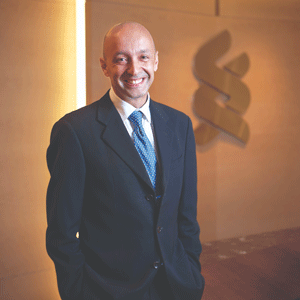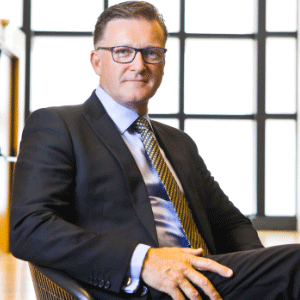THANK YOU FOR SUBSCRIBING

Digital Transformation in Fintech and Retail Banking - Boon or a Bane!
Santosh Basker, Executive Director-Digital Transformation, Standard Chartered Bank, Singapore


Santosh Basker, Executive Director-Digital Transformation, Standard Chartered Bank, Singapore
The topic of Fintech and banking has been a longstanding debate in the world of Finance. The way Fintech started was quite dramatic in how the disruption came through the decade specifically in Retail banking —impacting predominantly payments, lending, and remittances. Though there have been pockets of disruption but those haven’t actually caused an ‘Uber’ moment for the incumbents as such. However with many of the regulatory authorities across markets coming on board by supporting Fintech and welcoming such a change in the ecosystem, it has only paved way for the second generation of innovations.
Primarily there has been a transformation for the incumbents from being disrupted to going down the path of collaboration and partnership leading to a win-win situation for both the incumbents and Fintech. Banks in general have struggled with the pace of change as customers demand newer way of interacting and expanding the touch points consequentially. The advantage Fintech in general have is being nimble, understanding the pockets of opportunities with great ideas and the pace of the execution invariably means fast to market which the banks in general struggle upon. With the collaborative approach Fintechs are treated no longer as a vendor but a partner with the banks, going with similar objective, and goals thereby providing customers the enhanced convenience without having to spend millions on the infrastructure.
A prudent and collaborative partnership becomes the order of the day for long term sustainance
The legacy systems with the incumbents can now be tweaked to understand Open APIs thereby opening up the world of opportunities that Fintech brings in. The area of alternate lending models are also gaining momentum and fast disrupting the banking model. However, as regulators are becoming more savvy with the new innovations it would be only a matter of time before the right policies are put in place to ensure the risk is well balanced in the same way the banks are being governed.
As Fintech’s investment to date reaches 50 billion dollars by 2017, it only speaks aloud on the paradigm shift in the industry and the opportunities out there. However, without the backbone of stability and security from an incumbent it only makes sense this collaboration is used as a catalyst to enhance the ecosystem rather than a disruptive notion. The very idea of Artificial Intelligence combined with sophisticated data analytics, aggregation of multi bank data in a single view, Open APIs, faster –safer and easy payments, quick credit approval through P2P, Robo-Advisors, Wallets for payments, Block chain technology for contracts, KYC, Single Customer ID etc all lead to one possible outlook which is at the ‘heart of the customer’ and to deliver the way with the most convenient methods that benefit the customers.
With this in mind the incumbents are now going through an infrastructure transformation as well with the advent of innovation labs across industries ranging from banks to insurance entities. These labs foster innovations, research, and help in the collaboration of technology with the legacy systems and help in bridging that gap. On the flipside it enables the Fintech’s ability to collaborate with large banks with real customer base to test and improve their products through these labs.
I see the shift towards mobile banking with all the innovations however I also see voice recognition concierge services in the likes of Google Home, Amazon Echo, and Apple Home Pod’s striving leaps and bounds in to financial services. It will all be innovations and opportunities and is definitely a boon in the next few years but let’s not forget the ‘Human Touch’ in the process which will be the true testament to the success quotient for both Fintech’s and the incumbents. A prudent and collaborative partnership becomes the order of the day for long term sustainance.
See Also: Top FINTECH consulting companiesWeekly Brief
I agree We use cookies on this website to enhance your user experience. By clicking any link on this page you are giving your consent for us to set cookies. More info
Read Also













